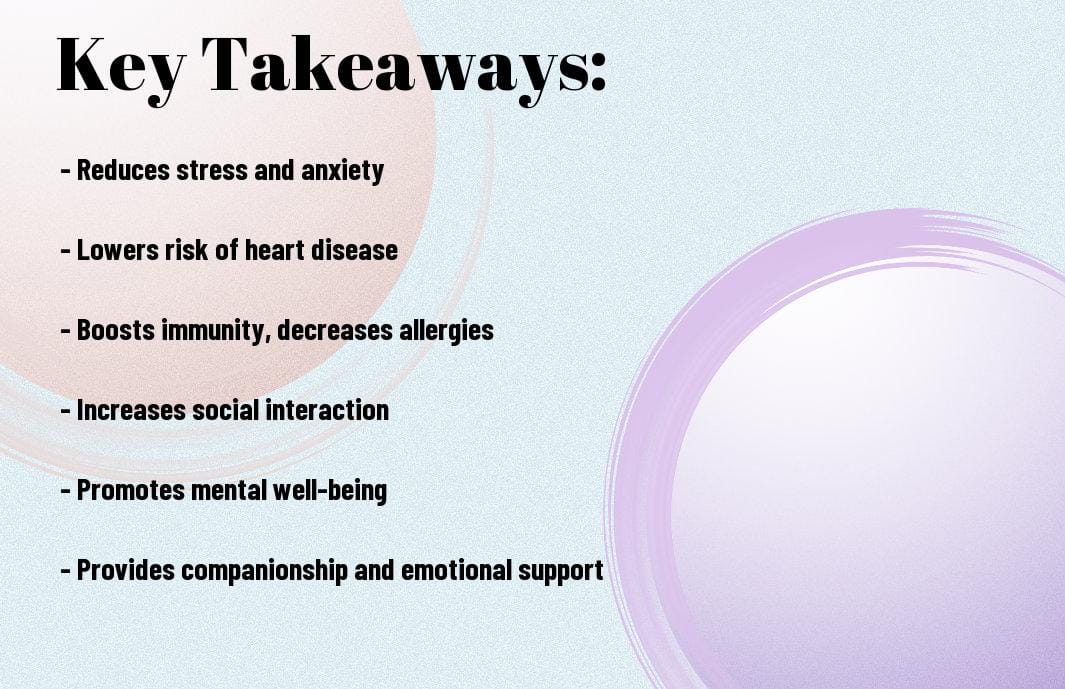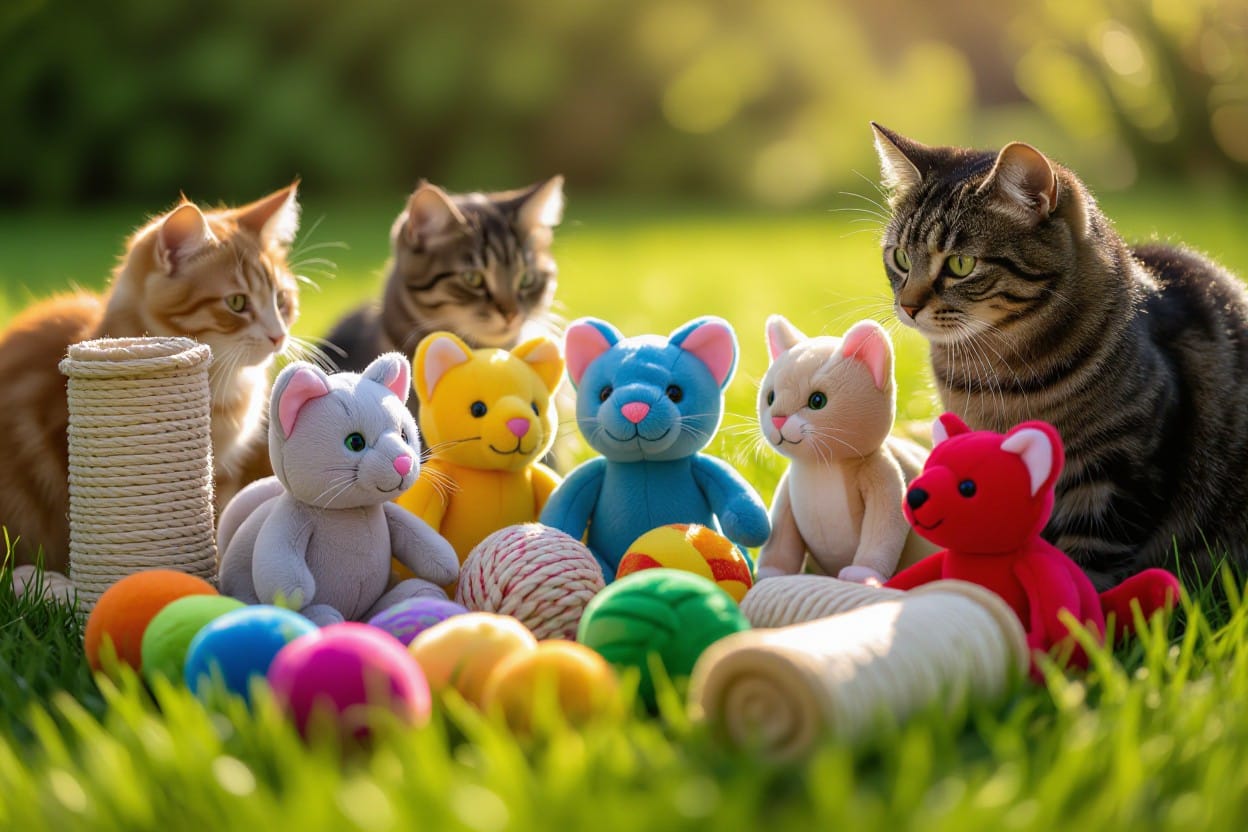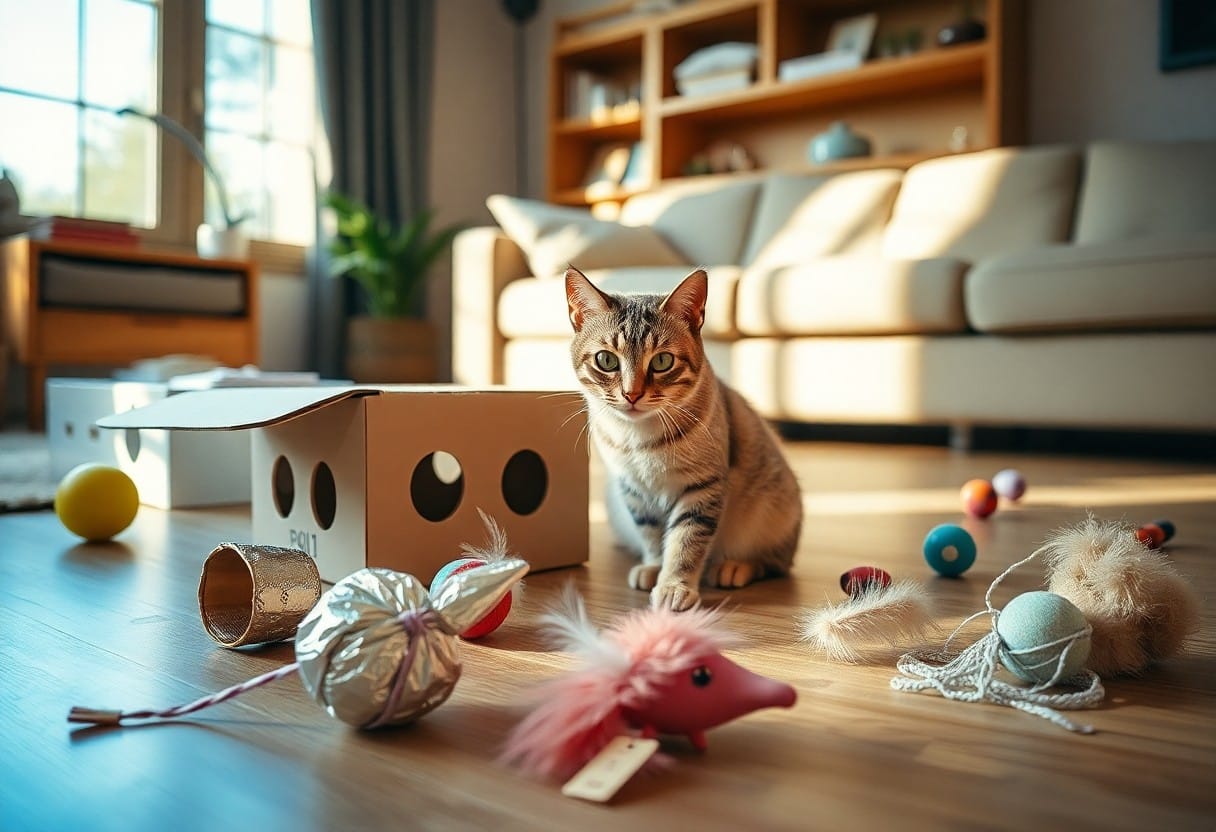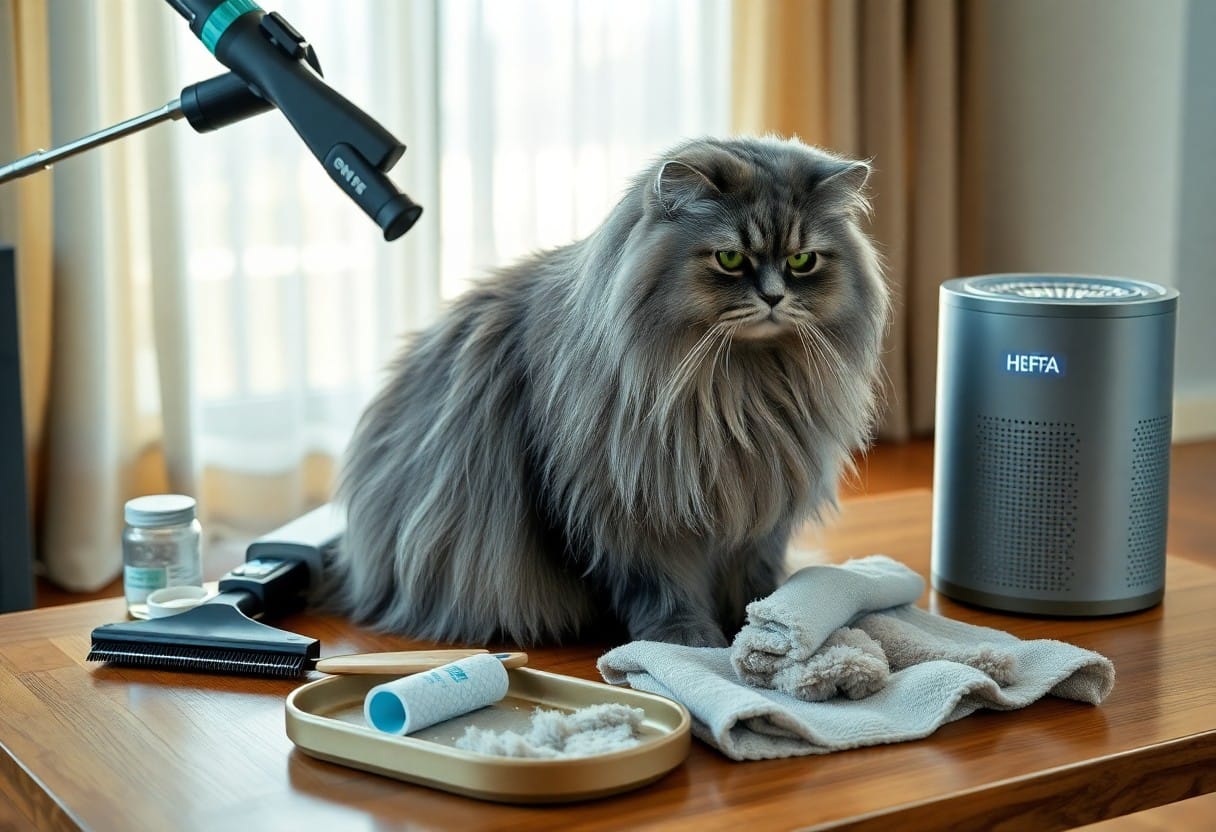Companionship with a feline friend can provide numerous health benefits beyond just a playful and cuddly companion. Research and studies have shown that owning a cat can have a positive impact on both mental and physical health. From reducing stress and anxiety to lowering the risk of heart disease, cats have a way of improving their owners’ overall well-being. In this blog post, we’ll explore the top 5 health benefits of having a cat in your life.


Psychological Well-being
Stress Reduction
Wellbeing studies have shown that owning a cat can significantly reduce stress levels in individuals. The calming presence of a feline friend can help lower anxiety and promote relaxation after a long day. The act of petting a cat releases endorphins, which are natural mood elevators, contributing to a sense of overall well-being.
Effects on Depression and Anxiety
Stress is a common factor in the development of depression and anxiety disorders. Research has shown that the presence of a cat can have a positive impact on mental health by providing emotional support and companionship. Cats are intuitive animals that can sense when their owners are feeling down, offering comfort and companionship during difficult times.
Understanding the benefits of owning a cat for mental health can be crucial for those struggling with depression and anxiety. The unconditional love and non-judgemental nature of feline companions can help individuals cope with their emotional struggles and feel less isolated.
Companionship and Loneliness Alleviation
Loneliness is a prevalent issue in today’s society, with many people feeling disconnected and isolated. Cats can provide much-needed companionship to their owners, offering a source of comfort and affection. The presence of a cat can help alleviate feelings of loneliness and create a sense of purpose and routine in one’s daily life.
For instance, coming home to a cat excitedly meowing and seeking attention can provide a sense of belonging and joy, making pet owners feel appreciated and loved. The bond formed between a cat and its owner can be a powerful antidote to feelings of loneliness and isolation.
Impact on Children and the Elderly
The companionship of a cat can have a profound impact on both children and the elderly. Cats can provide a sense of responsibility and companionship to children, teaching them empathy and fostering a nurturing bond. For the elderly, owning a cat can combat feelings of loneliness and offer a sense of purpose and routine in their lives.
This bonding experience with a cat can improve mental well-being and overall quality of life for both children and the elderly. Owning a cat can teach children important life skills and provide companionship to the elderly, creating a mutually beneficial relationship that enhances psychological well-being.
Physical Health Enhancements
Lower Risk of Heart Disease
For cat owners, the companionship and stress-relieving qualities of having a feline friend can actually contribute to a lower risk of heart disease. Studies have shown that the act of petting a cat can help lower blood pressure and reduce the levels of stress hormones in the body. The calming presence of a cat can have a soothing effect on their owners, which in turn benefits their heart health.
Therapeutic Purposes
With the rise of animal-assisted therapy, cats have been shown to be incredibly beneficial in therapeutic settings. Cats can provide emotional support and companionship to individuals dealing with physical or mental health issues. Their gentle purring and comforting presence can help reduce feelings of anxiety, depression, and loneliness.
Lowering stress levels can have a direct impact on overall health and well-being. Cat owners often report feeling less anxious and more at ease after spending time with their feline companions. The bond between a cat and its owner can be a powerful source of healing and comfort in times of need.
Allergy and Immunity Development
Allergen Exposure and Immune System Strengthening
Immunity: Owning a cat can actually help strengthen your immune system, especially in children. Exposure to pet allergens at a young age can help train the immune system to develop a tolerance to these allergens, reducing the risk of developing allergies later in life. While it may seem counterintuitive, regular exposure to cat dander and other allergens can help prevent allergic reactions in the long run.
Long-term Benefits for Children
Children: Research has shown that children who grow up in households with cats have a lower risk of developing allergies and asthma. Being exposed to pet allergens from an early age can help build their immune systems and reduce the likelihood of developing these common allergic conditions. Cats can also provide emotional support and companionship to children, which can have a positive impact on their overall well-being.
Allergen: While some parents may be concerned about their child developing allergies to cats, the opposite is often true. Introducing a cat into the home can actually help reduce the risk of allergies and asthma in children by strengthening their immune systems. Of course, it’s important to consult with a healthcare provider if your child already has allergies to ensure a safe and healthy environment for both the child and the cat.

Sleep Quality Improvement
The Role of Cats in Enhancing Sleep
To enhance sleep quality, many cat owners have found that the presence of their feline friends in the bedroom can be incredibly calming. Cats are known for their soothing purrs, which can act as a form of white noise that helps lull their owners to sleep. The rhythmic sound of a cat’s purring has been shown to lower stress levels and promote relaxation, making it easier to drift off into a restful slumber.
Cats as Sleep Companions
It is a well-known fact that cats are nocturnal animals, which can sometimes lead to them being more active at night. However, many cat owners have reported that having their furry friends sleep by their side can actually be comforting and help them feel more secure, leading to better sleep quality. The presence of a cat can provide a sense of companionship and reassurance, reducing feelings of loneliness or anxiety that may disrupt sleep.
Lifestyle and Activity Encouragement
Promotion of Play and Exercise
Once again, owning a cat can significantly impact your lifestyle by promoting play and exercise. Cats are naturally inclined to be playful and active, which can inspire their owners to engage in interactive play sessions. These sessions not only provide mental stimulation for the cat but also encourage physical activity for both the cat and the owner.
Routine and Responsibility
On the other hand, owning a cat also brings a sense of routine and responsibility into your life. Cats are creatures of habit and thrive on regular schedules for feeding, playtime, and rest. This inherent need for routine can help pet owners establish a daily rhythm and structure to their own lives.
Promotion of a consistent routine through caring for a cat can provide a sense of purpose and accountability. Planning and organizing daily tasks such as feeding, grooming, and cleaning the litter box can instill a sense of responsibility and discipline in cat owners. This routine not only benefits the cat but also contributes to the overall well-being of the owner.
Social Benefits
Improving Social Interaction
For many cat owners, their feline friends provide more than just companionship; they also help improve social interaction. With the common love for cats, cat owners often find it easier to connect with others who share the same passion. Whether it’s chatting at the vet’s office or attending a cat-themed event, having a cat can spark conversations and build relationships with like-minded individuals.
Cats as Social Catalysts within Communities
With their adorable antics and charming personalities, cats can serve as social catalysts within communities. Whether it’s a neighborhood cat that everyone adores or a local cat cafe where people gather, cats have a way of bringing people together. These furry creatures can help create a sense of camaraderie and unity among individuals who might not have interacted otherwise.
Interaction among cat lovers can lead to the formation of support networks, friendships, and even community events centered around cats. By simply being present and spreading joy, cats can play a significant role in fostering a sense of community and belonging among people.
Final Words
The health benefits of owning a cat are abundant and well-documented. From reducing stress and anxiety to lowering the risk of heart disease and improving mental health, cats can truly have a positive impact on their owner’s well-being. The companionship, love, and comfort provided by a furry friend can make a significant difference in one’s life.
So, whether you’re a cat lover already or considering getting a feline companion, know that the health benefits go beyond just having a cute pet. Owning a cat can lead to a happier, healthier, and more fulfilling life. Take care of your cat, and they will undoubtedly take care of you in return.
FAQ
Q: What are the top 5 health benefits of owning a cat?
A: Owning a cat can have a positive impact on your health in several ways:
- 1. Stress reduction
- 2. Lowered risk of heart disease
- 3. Improved mental health
- 4. Allergy prevention in children
- 5. Companionship and emotional support
Q: How do cats help reduce stress?
A: Cats have a calming presence that can help reduce stress and anxiety levels. Their purring has been shown to have a soothing effect on humans, promoting relaxation and lowering stress hormones.
Q: Can owning a cat lower the risk of heart disease?
A: Yes, studies have shown that owning a cat can lower the risk of heart disease and stroke. The presence of a cat has been linked to lower blood pressure and reduced risk of heart attacks, possibly due to the calming effect and stress reduction that cats provide.
Q: How do cats contribute to improved mental health?
A: Cats can contribute to improved mental health by providing companionship, reducing feelings of loneliness, and offering emotional support. Interacting with a cat can boost mood and alleviate symptoms of depression and anxiety.
Q: Can owning a cat prevent allergies in children?
A: Research suggests that children who grow up with cats are less likely to develop allergies and asthma later in life. Early exposure to cat dander and bacteria may help strengthen the immune system and reduce the risk of allergic reactions.
















